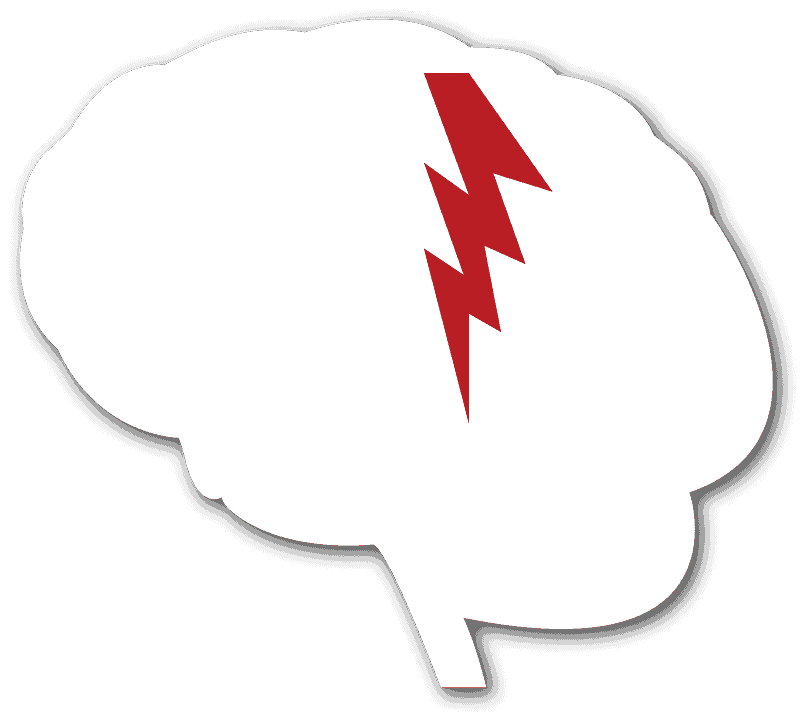Introduction
A seizure is a neurological event where there is a synchronous discharge of many neurons. Each individual has a ‘threshold’ at which their neurons will begin to do this. It is thought that this threshold is at least partly genetically determined. This threshold can be affected by:
- External stimulation – e.g. flashing lights
- Cerebral injury
- Rapid rise in temperature
- Genetic factors
- Age – threshold is lower in young children (<5 years)
- Infection / encephalitis
- Drugs
- RICP
In epilepsy, there is a very low threshold for seizures, and thus seizures can occur often.
A febrile convulsion in a seizure that occurs in the presence of fever (temp >38’). The seizure typically occurs early in the course of a viral infection – this is the time when the temperature is rising fastest.
They occur in response to a rapid rise in temperature – and not to a raised temperature alone.
Epidemiology
- 3% of children will have a febrile convulsion between the age of 6 months and 5 years
- Genetic component – the risk rises to 10% in individuals with a firth degree relative with a history of febrile seizures.
- Male predominance – 2:1
- Risk factors for further seizures include:
- Young age at first seizure
- Early on in the course of infection at first seizure
- Relatively low temperature at first seizure
- Family Hx
- The long term risk for epilepsy is not significantly altered – the risk is 1-2% – the same as the general population.
- Risk of further seizures:
- After one seizure – 10%
- After two seizures – 25%
- After three seizures – 33%
Seizure
Usually short, generalised tonic-clonic seizures. This might include:
- Tonic phase- body is stiff and rigid for up to 60 seconds. May be some vocalised indistinguishable sounds (epileptic cry). There may also be tongue biting, and incontinence (of urine and/or faeces)
- Clonic phase – generalised convulsion and limb jerking
- This kind of seizure is sometimes known as a simple febrile convulsion. Complex febrile convulsions are very rare, and may last >15min, and/or be focal.
Prognosis
Simple febrile convulsions do not cause any long-term neurological or other side effects. If no other risk factors are present (e.g. no epileptics in the family), the risk of epilepsy in the future is the same as that in the general population, but there is an increased risk of future febrile seizures.
- Complex febrile convulsions increase the risk of future epilepsy to 4-12%.
Management
This should focus on identification and treatment of the underlying infection.
- Parental education – parents should be reassured that this is not usually serious. They should be given info leaflets, and taught basic seizure first aid. It is also useful to give information on controlling temperature in a fever (e.g. antipyretics: Paracetomol, calpol!) and use of a tepid sponge may be beneficial, although evidence is not conclusive.
- Prolonged seizures – if there is a history of seizures >5min, then the family may be supplied with rectal diazepam or buccal diazepam. These only provide symptomatic relief during a seizure – the neuronal activity will not be affected.
- Advice for future seizures
- During the seizure – advise to try and stay calm, remove an objects that the child might injure themselves on, and make note of characteristics of the seizure
- If the seizure lasts more than a couple of minutes then call 999
- After the seizure – take the child to the GP / A&E for a checkup. Don’t always assume that is just another febrile convulsion without further investigation!
- In meningitis, further investigation is usually warranted, as it could be another source of neuronal irritation (i.e. not just fever) that has resulted in the seizure.
- EEG is not needed to investigate all cases of febrile convulsion!
- Usually, a first seizure is not investigated with EEG. IF a child has had several seizures, even in the presence of fever, then further investigation will usually be warranted.
